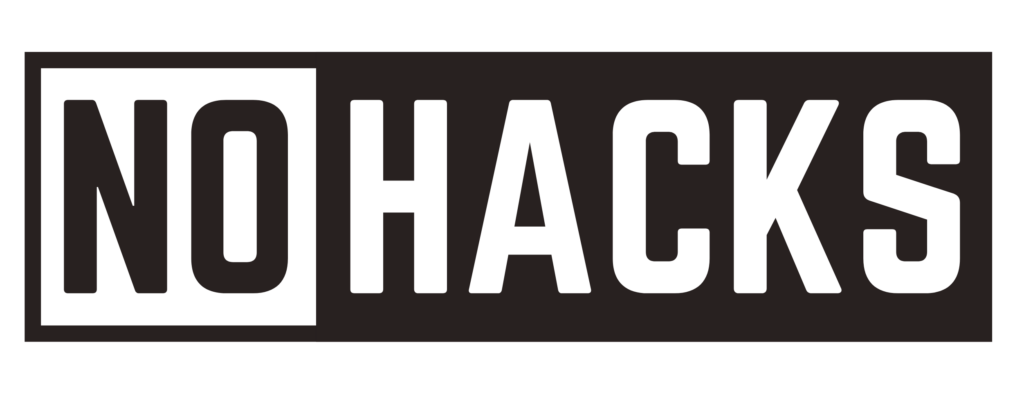Are you passionate about user research and UX? If so, you’ll love this deep dive into the mind of Els Aerts, co-founder of AGConsult and one of the most respected voices in the user research community. On a recent episode of the NoHacks Podcast, Els shared her no-nonsense, data-driven approach to user research, offering decades of insights and real-world advice on how the field has evolved.
About Els Aerts
Els Aerts is the co-founder of AGConsult, a leading usability and conversion optimization company that has helped countless businesses create user-friendly, conversion-focused websites. Known for her no-nonsense, practical approach to user research and UX, Els has built a career on delivering real, actionable insights based on data, not assumptions. With over 20 years of experience, she has become a leading authority in the world of user experience (UX), frequently speaking at global conferences and contributing to top publications on UX research, A/B testing, and conversion optimization.
Today You’ll Learn:
In this episode, we explored some of the key user research topics. Here’s what you can expect to learn:
- The Evolution of User Research: How research methodologies have changed from the 1990s to today, and what it means for today’s UX professionals.
- The Role of AI in User Research: Els’s take on how AI is reshaping the industry and where its limitations lie.
- The Pitfalls of “Research Theater”: Why it’s dangerous to conduct research just for appearances, and how to avoid it.
- Ethical Concerns with Synthetic Research: The risks of using AI to simulate user behavior and why real human interaction is still irreplaceable.
- Practical Tips for Effective Research: Actionable advice on surveys, personas, and avoiding common mistakes in user research.
- The Democratization of User Research: Els’s views on whether user research should be accessible to everyone and the risks of inexperienced people conducting research.
The Evolution of User Research: From the 90s to Today
User research has come a long way, and no one knows this better than Els, who has been practicing since the 1990s—back when Google Analytics didn’t even exist! In the early days, research relied heavily on qualitative methods, such as user testing and interviews, with fewer of the precise tools we have today. As Els puts it, today’s user researchers have access to an incredible array of options, from advanced surveys to unmoderated user testing platforms.
However, with great power comes great responsibility. Els emphasized that while new technologies have added value to our toolkits, the importance of knowing when and how to use the right tool has remained unchanged. Even with modern analytics and AI-driven insights, the expertise of the researcher is critical.
The Rise of AI in User Research
Speaking of AI, the rise of artificial intelligence is reshaping many industries, including user research. Els acknowledges the power of AI in speeding up repetitive tasks, even joking that it’s like having an intern always at your disposal. But she also warns against relying too heavily on AI for user research.
In Els’s words, AI “hallucinates”—it can generate misleading or overly broad insights that don’t reflect the nuanced experiences of real users. While AI can be a useful tool for brainstorming or streamlining workflows, it’s not yet ready to replace human researchers. Els advocates for a balanced approach, where AI assists, but human expertise still drives the most meaningful research outcomes.
Avoiding the Trap of “Research Theater”
One of the most powerful concepts Els discusses is the danger of “research theater”—when companies perform research for appearances rather than for genuine insights. It’s easy to fall into the trap of doing research just to check a box. But if you’re not asking the right questions, or using the appropriate methodologies, you’re simply going through the motions.
Els is quick to point out that research theater doesn’t lead to actionable results. In fact, it can send your project in the wrong direction, wasting time and resources. She advocates for thoughtful, deliberate research—where the focus is on finding real answers rather than just creating a show.
The Ethical Concerns Around Synthetic User Research
Another hot topic in the world of user research is the rise of synthetic users—the use of AI to simulate user behavior in research studies. While this concept sounds like a time-saving game-changer, Els is firmly against it, particularly in evaluative research.
According to Els, synthetic users can’t replicate the frustrations or nuances of real users. They often generate generic, unhelpful feedback that doesn’t provide the deep insights needed to optimize a product or service. She emphasizes that real human interaction is critical for evaluative research, and warns that relying on synthetic users could lead to flawed conclusions.
Els is open to exploring synthetic users for exploratory research, but only when supplemented by data from real people. As she aptly puts it: “We’re not selling our product to synthetic users, so why would we do research on them?”
Practical Tips for Effective User Research
Throughout the interview, Els offers a treasure trove of practical advice for both seasoned researchers and newcomers alike. Here are some key takeaways:
- Targeted Surveys Are Gold: One of the biggest game-changers in recent years has been the ability to create highly targeted surveys. By asking the right questions to the right audience at the right time, you can gather insights that are invaluable for optimizing user experience.
- Don’t Rely on Flawed Tools: It’s tempting to rush through research with tools that promise fast results. However, if you use the wrong methods or poorly crafted surveys, you’ll just be making mistakes faster. As Els reminds us, even well-respected researchers like Erica Hall criticize surveys—not because they’re inherently bad, but because they’re often misused.
- Ditch Traditional Personas: Els isn’t a fan of traditional personas, which often reduce users to broad, demographic categories like age or location. Instead, she advocates for more dynamic frameworks like Jobs-to-Be-Done, which focus on understanding what users want to accomplish with your product or service.
- Focus on Your Expertise: For newcomers to user research, Els recommends focusing on one area of specialization instead of trying to master everything at once. While it’s useful to have a broad understanding of research methodologies, deep expertise in a specific field—like UX, analytics, or qualitative research—will make you more effective.
The Democratization of User Research: A Double-Edged Sword?
One of the most interesting debates in the user research world is the trend toward democratizing research—allowing anyone, regardless of their background, to conduct user research. While this sounds great in theory, Els is skeptical. She argues that user research requires expertise, just like any other field. Letting inexperienced individuals run research can lead to faulty data and poor decision-making.
In Els’s view, this trend can dilute the quality of research being done. As she puts it, “No one talks about the democratization of baking. You wouldn’t just randomly throw ingredients into a cake without knowing the basics, so why would we do that with user research?”
Real-World Ethics: The Consequences of Poor Research
One of the most pressing concerns in user research is the ethical implications of using faulty methods or cutting corners. Els points out that poor research can have serious consequences. For example, if your research leaves out key user groups, you risk creating a product that doesn’t serve everyone equally, potentially alienating large portions of your audience.
Closing Thoughts: No Hacks, Just Solid Research
At the end of the day, Els’s advice boils down to one simple truth: there are no shortcuts in user research. It’s not about rushing to find answers or using flashy new tools to get faster results. It’s about doing the work properly, taking the time to understand your users, and applying thoughtful methodologies to yield real insights.
Whether you’re just starting out in the field or you’re a seasoned pro, the wisdom Els Aerts shares is invaluable. Her passion for the craft and commitment to doing research the right way is something we can all learn from.
If you’re looking to sharpen your skills, avoid the pitfalls of synthetic research, and focus on the fundamentals, this episode is a must-listen.

